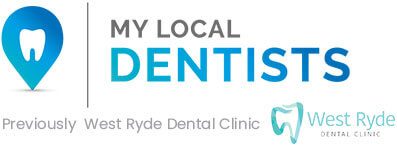![]() This year, August 5th to 11th has been designated as Australian Dental Health Week by the Australian Dental Association.
This year, August 5th to 11th has been designated as Australian Dental Health Week by the Australian Dental Association.
Australian Dental Health Week is an annual event intended to bring attention to Australia’s dental health by choosing one aspect of dental health to focus on.
Past topics have included “watching” your mouth, oral health and sugar, diet and oral health, sports and oral health, and women’s oral health.
This year, the theme is a question – “How’s Your Oral Health Tracking?” This question contains two sub-questions.
The first is the question, are you on track; that is, are you currently doing all you know you should do to support your oral health?
Second, there is the question of how you are keeping your eye on what you are doing so you can compare it to what you should be doing.
Everyone knows that we live in a hustle-bustle world, with many of us juggling our daily lives.
And one consequence of that is that dental care can be deferred in favour of other activities.
However, it is one of the ironies of tracking dental care that it can be hardest for those among us who have the least formal schedules – children, the retired, and the elderly.
And these are the folks for whom which good dental care can be most valuable. The good news is that by getting them on track or keeping them on track, everyone can maintain their dental health.
Keeping children on track
Children aren’t born aware that they need to take care of their oral health, nor do they know how to keep track of it.
Dental Health Week is a great time to introduce them to the importance of oral hygiene and how to maintain it.
One of the features of the Dental Health Week website is a group of colourful online posters that are aimed at younger patients.
They are a great way to introduce topics such as the dental risks of sugary and acidic drinks like soda pop.
This is important because three-quarters of young people (14-18 years) consume too much sugar.
These posters and a good conversation can teach children to limit their sugar intake and learn to read labels.
The information on the website also contains helpful hints for parents who are dealing with children:
- Spit out excess toothpaste, and don’t rinse your child’s mouth.
- A dab of toothpaste is enough.
- Brushing can be fun if you spruce it up with songs or videos on a smartphone.
- Kids love positive reinforcement. Always praise your child for their oral hygiene accomplishments.
- Bring your children to the dentist early – by one-year-old or when a tooth erupts.
- Flossing should begin as soon as multiple teeth are present.
- If your child has their ‘pen licence’ for writing with a pen at school, they can probably brush solo.
What’s most important is to help them develop good dental habits at an early age.
Track their progress on a calendar, or with stars, and when they reach certain milestones, reward them with mouth-healthy gifts.
Children model off their parents, and if you keep track of your dental status, they will also.
Keeping seniors on track
Seniors sometimes share a coordination issue with children, but in general, their issues are different.
They have spent a lifetime hearing what they should do to maintain oral health, but that process becomes more complicated with age.
Worse, problems that begin as minor issues in the mouth can quickly escalate to general-health issues, even potentially lethal ones.
And poor oral health is linked to other health problems, including heart attacks, diabetes, and pneumonia, all of which are serious threats to older patients.
Losing control of your oral hygiene and dental health can lead to problems:
- Dry mouth
- Root pain
- Gum disease.
- Tooth loss
- Uneven jawbone/teeth
- Thrush and denture-induced stomatitis.
- Oral cancer
A variety of issues make it harder to keep high levels of oral hygiene. Dexterity problems associated with aging can make brushing and flossing more difficult and less effective.
Loss of insurance can bring new economic issues to dental care, and reduced ability to travel can make ‘routine’ dental visits much harder.
Finally, memory issues such as dementia can make it very difficult to stick to an oral hygiene schedule.
For all of these reasons, seniors must keep close track of their dental habits, and if they cannot do so, their loved ones should do it for them.
My Local Dentists West Ryde Advantage
My Local Dentist’s (previously My Local Dentists West Ryde), service and treatment are entirely individualised to you and your needs.
Our West Ryde dentists are highly motivated and accredited practitioners with graduate degrees from the University of Sydney.
Alongside our dentists, the supporting staff at My Local Dentists West Ryde are tremendously dedicated and experienced to ensure that each visit with us is as pleasant as possible.
Call us on (02) 9809 7000 or request your appointment online TODAY!
We are located at Shop 20 West Ryde Marketplace, 14 Anthony Road in West Ryde.
